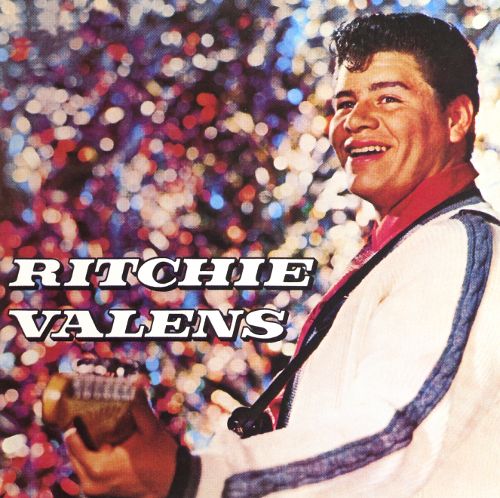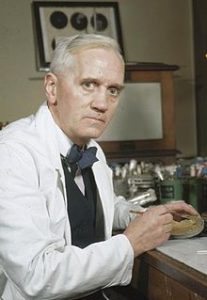It is the late 1950’s in southern California, and a young superstar named Ritchie Valens, whether he knows it or not, is about to change the culture of America forever. In a matter of eight months, the Hispanic student at San Fernando High School just became one of the biggest celebrity musicians of the day.1 After dropping out of school in order to record and tour full time, Richard Valenzuela was making phenomenal Rock N’ Roll music, both on stage and in the studio. While America quickly became obsessed with the undeniably talented teen, nothing could prepare them for his next release.
From the beginning, the odds were against young Richard. He was merely sixteen, and, as a young Latino, there were few opportunities for someone like him in the American mainstream music industry, let alone in Rock ’n Roll. He saw proof of this fact early in his career, facing prejudice and discrimination at every turn. He was even forced to change his name to Ritchie Valens in order to make it easier for his fans to pronounce—a compromise that gave way to controversy and anger from his family.2 Ritchie realized that, even though he was opposed to the changing of his name, it would be a smart move for him as a musician. But even after his family name was taken from him, he refused to let go of his heritage. In fact, it seemed that he tightened his grip.
Ritchie wanted to do something to pay tribute to his Latino culture. With the assistance of Bob Keane of Del-Fi Records, he decided he would combine the two worlds that he was now so heavily a part of, by turning the Spanish tune “La Bamba” into an upbeat rock song. Only knowing English, Ritchie had to learn the lyrics of the traditional Mexican folk song phonetically. After countless takes in the studio, he recorded the song on a two-track record with a second soon-to-be hit Oh, Donna.3
Ritchie released the track and promptly shook up America. Most people had no idea what the song was about, but, for one of the first times in modern music history, they didn’t care. The charismatic rhythm of the song combined with Ritchie’s unique voice; it was impossible to dislike it, and the song spread like wildfire, taking his career to new heights.
Seeing Ritchie perform was a spectacle only few Americans were graced with. His energy and impeccable guitar skills would engage the thousands of audience members from start to finish.4 While the crowd was swooning over every single song, there was nothing like that epic guitar riff that carries the tune of La Bamba.3 As soon as Ritchie’s guitar pick hit his strings, the fans simply could not contain themselves.

Unfortunately, Richard Valenzuela’s career was ended even quicker than it begun. Soon after his explosive rise to fame was sparked, and before he could finish his tour, Ritchie Valens was killed in a plane crash along with fellow artists Buddy Holly and The Big Bopper J.P. Richardson.6 The tragedy triggered nation-wide shock, and the day became known by many as “The Day The Music Died.”7
Although his life was ended much too early, perhaps it was this terrible fate that immortalized him in music history. His music and the rest of Valens’ amazing life inspired the film La Bamba, a timeless and classic film. Ritchie’s brave move in the release of “La bamba” inspired and enabled many other Hispanic artists to begin to make their way into the spotlight, making it much more than just a great song. We see the repercussions still today, through modern Latin Rock bands and all the sub-genres surrounding them, and will without a doubt continue to experience the fruits of the song for decades to come. Needless to say, American music and culture would not be the same without Richard Valenzuela’s audacious contributions.
- Encyclopedia of World Biography, 2004, s.v. “Ritchie Valens.” ↵
- Salem Press Biographical Encyclopedia, January 2017, s.v. “Ritchie Valens,” by Scot M. Guenter. ↵
- “‘La Bamba’ one of the 100 most important American musical works of the 20th century,” Broadcast Transcript. Weekend All Things Considered, NPR, July 15, 2000. ↵
- St. James Encyclopedia of Popular Culture, 2nd ed. “Valens, Ritchie (1941–1959),” Candida Taylor. ↵
- “‘La Bamba’ one of the 100 most important American musical works of the 20th century,” Broadcast Transcript. Weekend All Things Considered, NPR, July 15, 2000. ↵
- Robert Wright, “The Day The Music Died,” Aviation Safety, July 1, 2015. ↵
- “What Went Wrong On The Day Music Died?” Interview by Robert Siegel, Melissa Block, All Things Considered, NPR, February 3, 2009. ↵



163 comments
Idaly Oropeza
I really liked this article. I found it to be interesting and informative. I knew about this song since I was younger and I also watched the movie. Richie Valens was taken too soon and that is upsetting. Valens was lyrically and instrumentally talented. I would think that not being fluent in Spanish must have been a challenge while creating his music. Yet, Valens created many successful songs.
Kenneth Cruz
This was a very well written article, Joel! “La Bamba” is truly a classic and one of the first songs I learned to play on guitar. I also learned something new while reading this. I never knew that Ritchie didn’t speak fluent Spanish. It must have really been a struggle having to learn and write such a great song. With this new knowledge in mind, I have a greater appreciation for the song.
Ariette Aragon
I really liked your article! La Bamba is a very iconic song in Latin America and in the United States, and I think that for a moment when this song plays, it unites us. It is unfortunate that he died at such a young age and with such a big future ahead of him. I am sure that his legacy will be remembered forever. Thank you for honoring the talented Richard Valenzuela.
Jacqueline Guardia
My family’s song is La Bamba, every time that I hear the song it is impossible for us not to start dancing. I never knew who the singer was and what his life was about. Reading about Ritchie’s death due to a plane is heartbreaking so much talent gone and so much more he could have done with music. Thank you for writing about him and honoring his name. Great article.
Nathan Castillo
I never understood this song whatsoever or the backstory behind it, but I still really enjoyed the article. It was tragic that he died in a plane crash because I would have loved to see what other pieces of music he could have made. I think I can remember hearing this song in old fashioned diners or anytime I went to a party pre-COVID and I would just always twist to this song because it was so enjoyable.
Justine Ruiz
I knew a lot about Ritchie Valens because I have seen the movie, La Bamba a few times. The movie makes me cry uncontrollably since his life was ended too early. It’s ugly to imagine that he had to change his name just to try to please others so his career could take off. People weren’t so welcoming of his birth name. I love that fact that he never forgot who he was or where he came from, he continued to be the son his parents raised.
Melanie Fraire
I watched the movie “La Bamba” when I was younger and I loved it, the way they told his story, his love life, his family, however the ending will without a doubt make even the toughest person tear up. It’s so sad how soon he was taken away I can’t even imagine what it felt like for his family or his dedicated fans.His music however is without a doubt catchy and very beautiful.
Kennedy Arcos
I remember watching La Bamba so many times growing up. I enjoyed reading this article because it refreshed my memory on what I knew about Ritchie Valens. His death was a tragedy, but his beautiful music will live on forever. It’s also pretty upsetting how he had to change his name to receive more recognition. I also really enjoyed the video added to this article.
Micheal Baladez
Personally, I have only ever seen this song as a catalyst for memes and the often poorly-said butt-end of a joke or two. I never had anything against the song, in fact liking the song to a certain degree which was only supplemented with the fact that it made a cameo in the movie Grease starring John Travolta, one of my mother’s favorite movies. Before reading this article, I never knew that Richie was one of the victims of the plane crash that killed Buddy Holly on “The Day The Music Died”, giving me a whole new perspective on La Bamba and how it was one of the major musical influences of its time.
Mike B.
Personally, I have only ever seen this song as a catalyst for memes and the often poorly-said butt-end of a joke or two. I never had anything against the song, in fact liking the song to a certain degree which was only supplemented with the fact that it made a cameo in the movie Grease starring John Travolta, one of my mother’s favorite movies. Before reading this article, I never knew that Richie was one of the victims of the plane crash that killed Buddy Holly on “The Day The Music Died”, giving me a whole new perspective on La Bamba and how it was one of the major musical influences of its time.